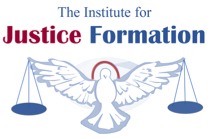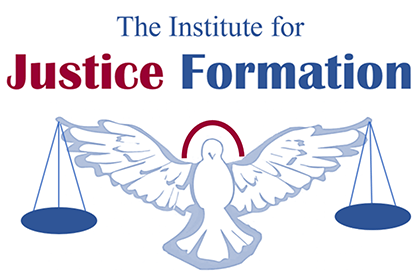A LEIGH KENNEDY
Please introduce yourself, share a little about your background and why you took this course.
Hello, I am Rev. A. Leigh Kennedy, a recently retired (CAP) USAF Supply Chaplain (2018). June 2020 will mark my 30th anniversary in full-time, Christian ministry. The Leland Seminary course In Search of Biblical Justice brings my ministry to full circle.
I first came to ministry and prison ministry at that as a volunteer under the former ‘Good News Mission,’ a ‘para-church’ organization, working alongside churches serving our side of the church and within the community. Over the course of my ministry, I have witnessed many tragedies, a few poignant injustices, several lives miraculously changed, and some stunning victories as well. As a result, I have remained actively engaged in the issues of criminal justice, victims’ rights, re-entry, and restoration ministries.
Before taking the course In Search of Biblical Justice, how would you have defined justice?
Thus, when I enrolled in the keystone course In Search of Biblical Justice and the foundation of the Justice Formation Program at Leland, the concept of ‘Biblical Justice’ was intriguing. Particularly, as my definition of ‘Social Justice’ engaged the principals of ‘balanced justice’; between the “throw-the-book- at-‘em,” versus “a slap on the wrist” type of justice.
Therefore, the concept of ‘Social Justice’ is inclusive and no small feat, but rather encompasses the full cycle of the justice system from the arrest, to conviction, incarceration, parole, or probation – and ultimately release back into and ultimately restored within society. This act of ‘restorative justice’ is ‘transformative’ both for the Offender and society.
Tell us about one or two lectures that most impacted your perception of justice during the semester. How was justice as recognized in Scripture defined? What biblical texts did the professor use as support?
Throughout the program, each Professors’ lecture, offers a dynamic and thought-provoking experience as I recall learning the Biblical Justice concepts of ‘sedeq’ (Jer 23:6; Ezra 9:15; Ps 4:1) and ‘mishpat’ (Deut 32:4; Ps.9:7; Ps. 37:28), the Hebraic words for ‘justice and righteousness,’ the very foundation of the Old Testament and Biblical Justice. Each lecture rehearses the biblical narratives of Scripture and reviews the philosophical and historical constructs arising from both the Bible and literature, as the very basis and framework of our American jurisprudence system.
Still another notable lecture was that of Professor Shirin, who contrasted ‘Western Theories of Justice.’ In a ‘Biblical’ framework, tempered justice consists of both ‘Grace’ (unmerited favor from God) and ‘Mercy’ (not attributing to one what their ‘transgression’ demands). St. Thomas Aquinas states in this manner, ‘in medio stat virtus’ or ‘justice stands in the middle.’ This philosophical construct was first offered by Aristotle and reflected later by Aquinas. Whereas “Social Justice” is concerned with the effects of crime on the victims and society; and encourages the offender to take responsibility for their actions and to make responsible amends or sincere apology to the victim; “Biblical Justice” is concerned with extending ‘grace and mercy’ to the offender, as an act of forgiveness and reconciliation with God.
How have these points and the course in general changed or advanced what you think about or how you define justice?
Unfortunately, I had lost sight of the fact that God’s plan (his justice) for our lives, was always to ‘commute our sins’ and to restore us to full fellowship, communion with his creation.
In another distinguished lecture on the ‘shalom peace of God,’ I learned the true meaning of ‘shalom’; why and how, it is essential to justice? The Professor went on to share this was basically a ‘faith without works’ challenge (James 2:14-26). For, if we negate justice, or are unintentional or worse, insincere in our obedience as a Christian towards the correct attribution of justice, then possibly we have missed God’s heart for justice. For it is God’s loving and compassionate mercy towards us, which we should equally extend in mercy and forgiveness to others (John 3:16-17).
These are some of the insights derived from compelling lectures found in the Justice Formation program, In Search of Biblical Justice course at Leland.
How will these learnings and reflections impact your ministry going forward?
Lastly, the plethora of spiritually challenging textbooks, including Nicholas’ God Loves Justice (Nicholas, 2017) and the Westfield & Dyer text: The Bible and Social Justice: Old Testament and New Testament Foundations for the Church’s Urgent Call (Westfall, 2015) serve both as motivation and a guidepost; Each, challenging one to take stock of and act against injustice, by fostering a clear response, consistent with Biblical Justice. For myself, this was couched both in prayer and action in support of justice initiatives, affirming best practices and encouraging better and more transformative justice.
Accordingly, no matter the discipline, ‘Biblical Justice’ is a social imperative established in Genesis, and demonstrated throughout the Old and New Testaments, with implications essential to our lives, and frankly social and public safety today. Every profession would gain valuable insight into the concept of ‘Social Justice,’ what it means, and how best to enact ‘Biblical Justice’ from their discipline. Collectively, we can all create a better, more humane, and just society, as envisioned by the Father for his creation.

